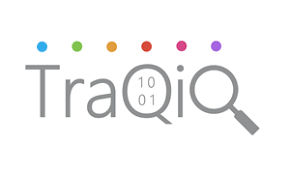Is it possible to connect 8 billion people across the world and enable them to do 1:1 transaction in a scalable, secure and convenient way?
Well, yes… in due course.
We live in a world of small transactions. We get a car via Uber. We rent a room or an apartment via Airbnb. However, if you really think about it, the transaction is between 2 individuals – one who needs a car and one who has a car.
Big economy companies like Uber and Airbnb have heralded a new era of transactions and commerce. The current generation of users lead a slightly different life than the previous generation – they ride with Uber, pay with Venmo, and have food delivered by Grubhub. If you really think about all these small transactions that they are conducting, a few thoughts come to mind –
- A lot of these transactions are on mobile devices.
- There is money involved in most of these transactions.
- Most of these transactions are between 2 individuals (P2P) or businesses.
- Users are fickle and tend to change preferences rapidly.
So, why do we need companies to facilitate these transactions? Do they really deserve 30-40% of the transaction value?
Visa and Mastercard have earned billions of dollars by taking a small percentage of transaction value for decades.
Exploring Blockchain provides some key answers.
- The platform is secure, extensible and global.
- It allows for a 1:1 relationship – right from when the contract is “signed” to ensuring that funds are transferred when the “work”/ “task” is completed. Also, in a perfect world, the people/individuals would be exchanging Bitcoin (or some other suitable Coins as currency). We get to move away from the bloated world of the banking system.
There is a maturation process for Blockchain. There are issues….
As technology matures and there is widespread adoption, there will be tremendous growth, as everyone on the planet becomes a node and transacts with other nodes. There will be contracts, payments and relationships. Why does a user need to rely on AmEx membership points? Why not use the Blockchain model to build a model for loyalty points?
So, will companies like Airbnb and Uber go away? No, they play a vital role in our ecosystem. They help facilitate the transaction. They recruit drivers and homeowners, certify them and make sure that suitable security elements are in place. They also have technology that works globally. They will stay – however, as individuals start acting as Blockchain nodes, it is likely that they will not want to pay that 30+% for these facilitators. Perhaps a one-time charge of a few hundred to get certified.
Blockchain offers us a lot of potentials – starting with decentralized apps. We have seen innovative solutions in 1:1 transactions in the supply chain. However, Blockchains are limited in their ability to scale today. But there is a tremendous amount of innovation that we are yet to see.
TraQiQ has begun the process of moving the core platform for supply chain to Blockchain. As the company moves to leverage the power of transactions on this platform, it is likely that the Digital Currency component will play a significant role in fulfilling these transactions.



